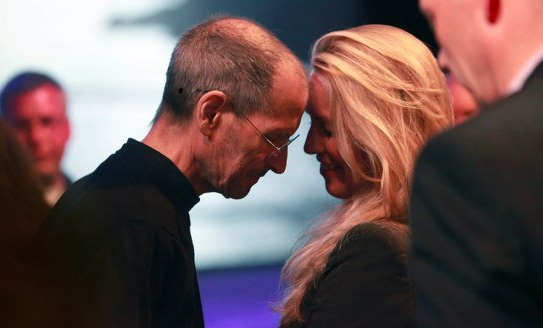



By now, the story is the stuff of legend. How the tall blonde woman known only as Laurene met with a young Latina in East Palo Alto—a neighborhood bypassed by Silicon Valley’s dot-com boom—every few weeks for mentoring. How the girl confided in Laurene about her difficult childhood. How, without Laurene, she might not have become the first person in her family to graduate from college. And how, as a freshman at the University of California, Berkeley, she learned from a news article that Laurene was the wife of Apple’s co-founder, Steve Jobs—“Silicon Valley royalty,” as The New York Times put it.
As Steve Jobs’ wife for 20 years, Laurene Powell Jobs practiced a low-key philanthropy that matched the style, if not the substance, of her famously publicity-averse husband. In 1997, as a consequence of her experience working with high school seniors on the college admission process, she co-founded College Track, a comprehensive after-school advisory program that las year reached more than 1,600 high school and college students in Northern California, New Orleans, and Aurora, Colorado. Powell Jobs’ contributions to College Track, where she still serves as the chair, are made through Emerson Collective, an organization she established about a decade ago, and which—because it is incorporated as a small business rather than a tax-exempt 501(c)(3)—does not have to publicly report its donations. She is also a member of some half-a-dozen nonprofit boards, including that of Stanford University, where she earned an M.B.A. “If you total up in your mind all of the philanthropic investments that Laurene has made that the public knows about, that is probably a fraction of 1 percent of what she actually does, and that’s the most I can say,” Powell Jobs’ longtime friend and fellow philanthropist Laura Arrillaga-Andreessen—herself a member of Silicon Valley royalty, as the wife of Netscape founder Marc Andreessen—told the Times.
That commitment stands in marked contrast to Steve Jobs’ indifference, if not outright aversion, to philanthropy—an attitude for which he came under harsh criticism during his lifetime. Although some of his greatest fans, including the MacDailyNews blog, have speculated that Jobs gave away millions secretly (one rumor has focused on a very large anonymous donation to a San Francisco cancer center)—there is no paper trail to support such conjectures. On the contrary, Walter Isaacson, Jobs’ biographer, writes that not only was he “not particularly philanthropic,” he was contemptuous of people who “made a display of philanthropy or thinking they could reinvent it.” Although he “admired” Powell Jobs’ work in education reform, Isaacson adds, he never visited her after-school centers. Of course, it’s important to recall that Bill Gates and even Warren Buffet were criticized at one time for being tight-fisted, until they started to give billions away. Had Jobs lived, it’s conceivable that he would ultimately have met the challenge to “think different” in philanthropy as brilliantly as he did in technology.
Jobs’ death in 2011 left Powell Jobs as one of the richest women in the world, with some $12 billion, most of it in Disney stock, in her name. It also gives her greater freedom to lend her voice and spend her money openly on behalf of the causes she supports, and that is precisely what she has begun to do. One of the first issues she has embraced is immigration reform, a natural outgrowth of her focus on education and her personal experience as a mentor.
The Emerson Collective, which didn’t even maintain a website a couple of years ago, currently has an up-to-the-minute site that addresses progress on immigration legislation as well as protecting the environment, education reform, and gun control. Last year she bankrolled a 30-minute film, “The Dream is Now,” about four young people whose prospects are bleak because they are in the U.S. illegally; she took it to Capitol Hill to showcase it to members of Congress, and sat for a rare interview with NBC’s Brian Williams in which she shone as an articulate, earnest advocate, bearing out Isaacson’s assertion that “she is one of the smartest and most grounded people I have ever met.” She is also a deeply private person, like her late husband, and friends say that’s unlikely to change. However, given her commitment “to try to effect the greatest amount of good,” as she told the Times, it’s doubtful that she will be able to pass again as a tall blonde woman known only as Laurene.